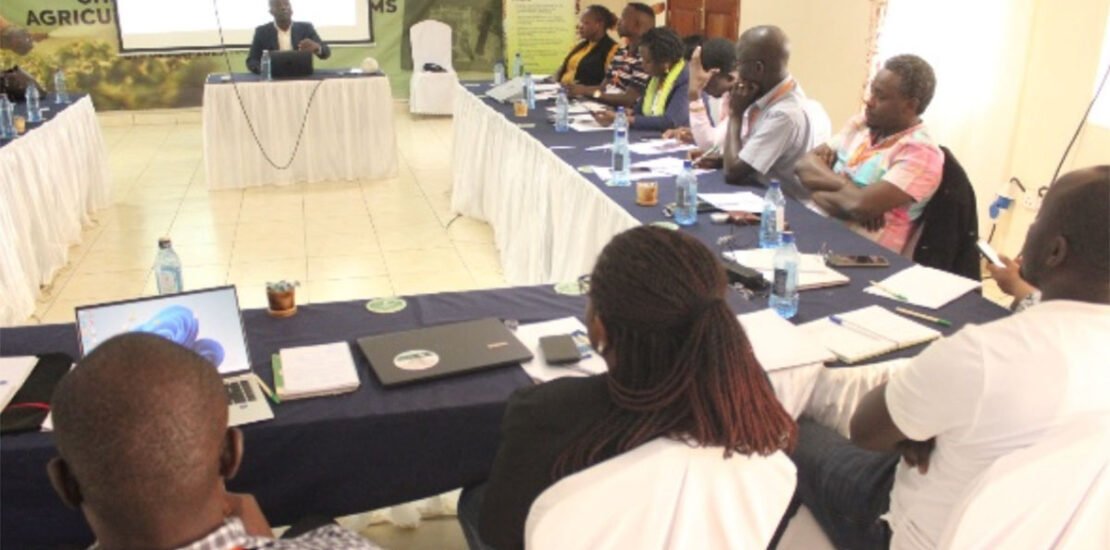CEFROHT and AFSA Equip Journalists to Champion Agroecology and Pesticide Regulation in East Africa
- July 10, 2025
- Posted by: CEFROHT Reporter
- Category: Agroecology

From 28th to 30th April 2025, the Center for Food and Adequate Living Rights (CEFROHT), in partnership with the Alliance for Food Sovereignty in Africa (AFSA), conducted a high-impact training for journalists across the East African Community (EAC). The workshop focused on pesticide regulation and legal support for agroecology, empowering media professionals to drive informed public discourse on food system transformation.
Dr. David Kabanda, Executive Director of CEFROHT, led a critical session on the legal frameworks governing pesticide use at international, continental, regional, and national levels. He strongly condemned the European Union’s export of Highly Hazardous Pesticides (HHPs) to Africa—substances banned within the EU but shipped to countries like Uganda, where regulatory systems remain weak.
Journalists as Catalysts for Change
Recognising the media’s pivotal role in shaping policy and public opinion, the training equipped journalists with legal, scientific, and investigative tools to:
- Expose harmful pesticide practices and corporate lobbying,
- Advocate for agroecological alternatives,
- Hold governments and corporations accountable for pesticide misuse.
Participants from Uganda, Kenya, Tanzania, Rwanda, Burundi, and South Sudan engaged in sessions covering:
- Agroecology as a sustainable farming practice and social movement,
- Legal frameworks governing pesticide use,
- International conventions such as the Stockholm and Rotterdam Conventions,
- Investigative techniques to track pesticide impacts and corporate influence.
EU’s Double Standards in Pesticide Exports
A key focus was the EU’s export of banned HHPs to Africa, a practice Dr. Kabanda labelled as “environmental injustice”. Despite being prohibited in Europe, these toxic chemicals are legally exported to Africa, exploiting weak regulations. Dr. Kabanda urged African governments to strengthen bans, enforce stricter import controls, and hold exporters accountable.
Dr. Kabanda highlighted the lack of harmonised pesticide laws in the EAC, leaving nations vulnerable to toxic dumping. He pointed to Uganda’s outdated pesticide policies as an example, urging regional alignment under the EAC Treaty to bolster defences against hazardous imports.
Commitment to Media Advocacy
The workshop concluded with a pledge to establish a regional journalists’ network dedicated to:
- Monitoring pesticide policies and agrochemical trade,
- Collaborating with legal experts for evidence-based reporting,
- Advocating for national reforms in pesticide governance.
This initiative underscores the power of media and legal advocacy in advancing agroecology and combating toxic agriculture. By equipping journalists with knowledge and tools, CEFROHT and AFSA are fostering a healthier, fairer, and more sustainable food future for East Africa.
